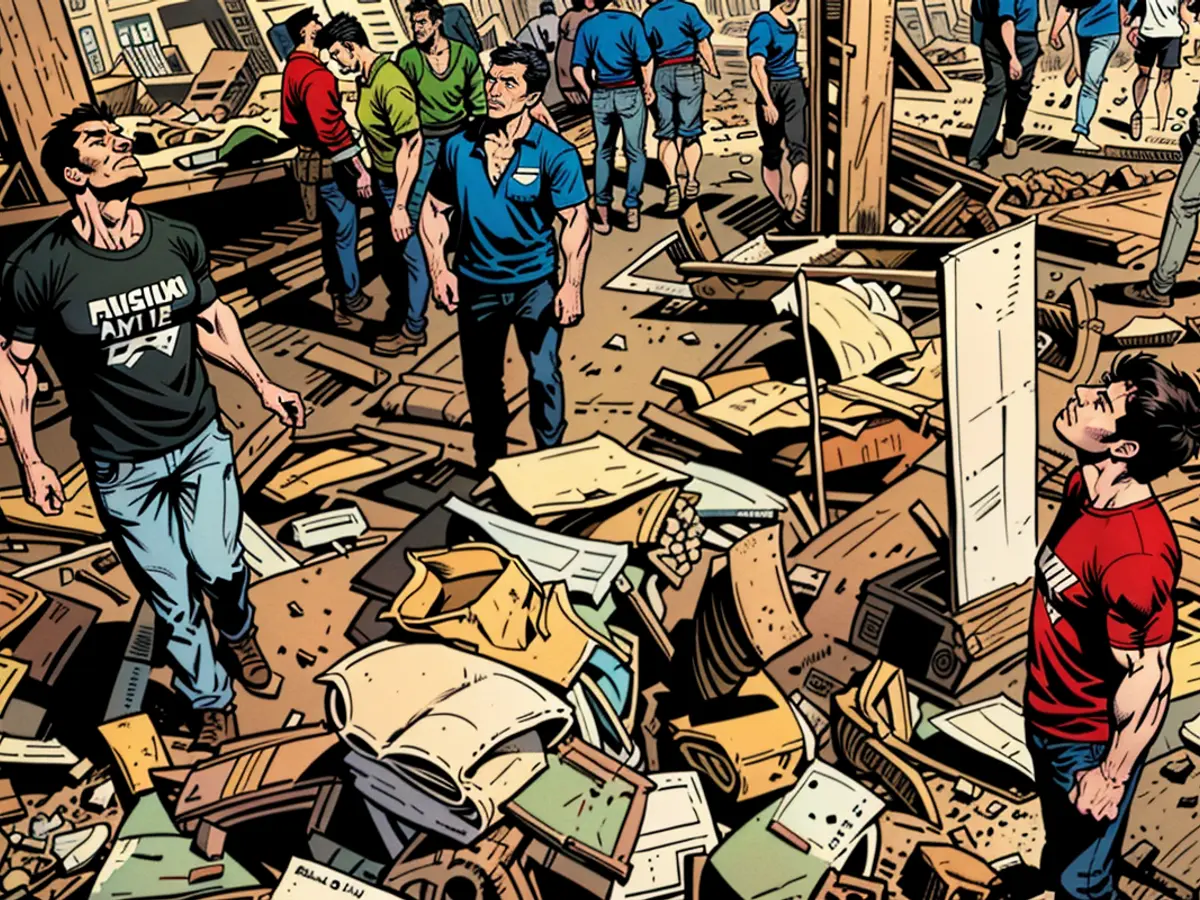- Fateful days in the Middle East: Regional war or ceasefire?
After an Israeli airstrike on a school building in Gaza with dozens of fatalities, the fighting in the coastal strip continues with undiminished intensity. Residents of the city of Khan Yunis reported Israeli attacks after the army called on civilians to immediately leave a northern district. Israel accuses the Islamic terror organization Hamas of exploiting the humanitarian zone in the area for rocket attacks on Israeli settlements.
Khan Yunis is located in the south of the Gaza Strip. According to the UNRWA General Commissioner Philippe Lazzarini, more than 75,000 Palestinians in the southwestern coastal region have had to flee fighting in recent days alone.
Middle East diplomacy is working against the escalation of the war
Meanwhile, behind the scenes efforts are underway to ease the explosive situation in the entire region through diplomatic efforts. A planned round of talks on Thursday in Cairo or Doha could be crucial.
The focus is on the indirect talks between Israel and Hamas that have been stalled for months to initiate an end to the ten-month-long Gaza war and secure the release of more than 100 hostages held by Hamas. The US, Egypt, and Qatar are mediating.
Ten days after the killing of two high-ranking enemies of Israel in Tehran and Beirut, it remains unclear whether and when Iran and the Lebanese Shia militia Hezbollah will carry out the threatened massive retaliation against Israel. Israel's military forces have been on high alert for days. The US, Israel's most important ally, has deployed additional warships and combat aircraft to the region. However, there is a certain hope that a ceasefire in the Gaza war could bring about a general calm.
Scholz speaks with Netanyahu: for de-escalation and Gaza ceasefire
Federal Chancellor Olaf Scholz (SPD) expressed great concern about the danger of a regional wildfire in the Middle East in a telephone call with Israeli Prime Minister Benjamin Netanjahu. He said that the time has come to finalize the agreement on the release of hostages and a ceasefire, with the goal of regional de-escalation, according to a government spokesman in Berlin.
The danger of a wildfire in the region has been looming since late July, when two leading figures of Hamas and Hezbollah were killed in attacks. The Hamas foreign chief, Ismail Haniyeh, was killed in an explosion at a guesthouse of the Iranian government in Tehran. Fuad Shukr, a kind of military chief of Hezbollah, was killed in airstrike in Beirut a few hours earlier. Israel claimed responsibility for his targeted killing. It has not commented on the assassination of Haniyeh.
Israel and its allies believe that in a retaliation attack, they can largely intercept a large number of rockets, cruise missiles, and drones with modern defense systems. If many people are still killed, Israel could react with massive retaliation, which could trigger an uncontrollable escalation and a large Middle East war, even if this is not intended by any of the sides.
Outrage over attack on school building - Israel: death toll exaggerated
Escalation fueled by Israeli airstrike on Gaza school building
The situation was further inflamed by an Israeli airstrike on a school building in Gaza on Saturday, with the Palestinian Civil Defense controlled by Hamas reporting at least 93 people killed. The building was being used as a refugee shelter. Witnesses reported the attack occurred in the early morning hours while many were performing their morning prayers.
However, the Israeli military claimed the building housed a Hamas command center, where at least 19 Hamas and Islamic Jihad commanders and fighters were killed. The air force used small-caliber rockets, suggesting the death toll could have been lower. Neither side's claims could be independently verified.
EU foreign policy chief Josep Borrell expressed horror at the attack, tweeting, "At least ten schools have been targeted in recent weeks. There is no justification for these massacres." The US government expressed "profound concern" over reports of civilian casualties.
Protests against 'armchair' Netanyahu
Meanwhile, thousands demonstrated in Tel Aviv and other Israeli cities for an agreement that could lead to the release of 115 hostages. "This is our last chance to reach a deal that saves lives," said the mother of a captive at the Tel Aviv rally. "Netanyahu continues to endanger the hostages' lives to keep his throne," she told Haaretz.
On October 7, 2022, Hamas and other Gaza Strip groups attacked southern Israel, killing over 1,200 people and taking 250 as hostages. This unprecedented massacre sparked the Gaza war.
During a brief ceasefire, over 100 hostages were released, mostly women and elderly. Freed hostages reported inhumane conditions, deprivation, violence, and psychological terror. Hamas is believed to still hold 115 hostages, with Israel declaring 41 dead. Many more may also be deceased.
The United Nations Relief and Works Agency for Palestine Refugees in the Near East (UNRWA) General Commissioner Philippe Lazzarini expressed concern over the displacement of Palestinians in the Gaza Strip, as more than 75,000 people have been forced to flee due to the ongoing fighting.
The international community, including the Middle East Quartet composed of the United States, Russia, the European Union, and the United Nations, is urging the Commission to play a role in facilitating a peaceful resolution to the conflict in the Gaza Strip, recognizing its unique mandate and expertise in dealing with the refugee issue.








